Unsettling Days
Assaf Gavron’s The Hilltop, first published in Hebrew in 2013, is a refreshing reminder that traditional realism is still an effective vehicle of insight into contemporary society and politics. There is nothing modernist or postmodern in the way Gavron tells his story—no experimentation with narrative form, no dense interior monologues, no stylistic fireworks. What Gavron repeatedly evinces is a very keen eye for characteristic gesture and speech, for the reflexes of social milieu, and for the ways in which ideology suffuses attitudes and actions. The sum effect in this novel is a probing representation of the settler movement and the ambiguous relation to it of the Israeli government and of the consumerist world of secular Israel.
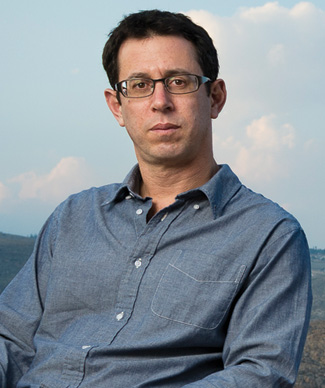
The book is alternately satiric (it includes scenes of sheer farce) and somber, ending on a mock-idyllic note that points to a future fraught with ominous potential. Though it seems safe to infer that Gavron strenuously objects to the settler movement, part of his achievement is that he is able to imagine it sympathetically from within, making us see the world as the settlers, who perceive themselves as embattled idealists, must see it. The book begins with ironic echoes of the Garden story in Genesis (“In the beginning were the fields . . . And so it came to pass that Othniel deferred to the vintner . . .”), ironically intimating that the settlers may imagine they are living in a new Eden. The English version of the novel is well served by Steven Cohen’s lively translation, which takes minor liberties with the Hebrew to vivifying effect and can be faulted only for the now predictable repeated use of “like” where “as” is required and for sometimes making the dialogue sound too American (“dude” for the Hebrew gever, “man” and “bro” for the Hebrew ahi, “brother”).
The hilltop of the title is a small illegal settlement in the West Bank, Ma’aleh Hermesh C, which adjoins two older, authorized settlements, Ma’aleh Hermesh A and B, and sits above an Arab village surrounded by old olive groves. A large cast of characters populate Ma’aleh Hermesh C, ranging from an ideologically ferocious beautician—the choice of her profession is itself amusing—to a young and prejudiced American immigrant floundering with his rudimentary Hebrew, and several couples, some happy and some dysfunctional, who mainly want to enjoy family life in a quiet prospering place, an aspiration probably shared by a large part of the population of very different settlements. They could scarcely all be like Ma’aleh Hermesh C, but novelists are obliged to use one instance to stand for the societal whole (surely not every orphanage in 1830’s England was quite like Oliver Twist’s).
Ma’aleh Hermesh C is a rigorously Orthodox community: Worship takes place in its little makeshift synagogue morning and evening; the Sabbath is strictly observed; the men, with beards and pe’ot, wear large knitted skullcaps and regard the small kippot of the modern Orthodox as a shameful concession to the secularists. Some, though not all, of these settlers are genuinely devout, dedicated to a serious quest for spiritual fulfillment. The novel embodies a sympathetic understanding of the Sabbath tranquility experienced by these Jews and the sense of security and harmony realized through the familiar cycle of daily rituals and annual festivals. But since Gavron is a realist, he also knows that people, however religious, will inevitably be people, and so a piquant subplot involves a passionate affair between the teenage daughter of one of the large, pious families and a young Ethiopian soldier who serves in the IDF contingent assigned to protect the settlement.
Gavron juggles these ramifying relationships and personalities quite deftly, but he places two brothers at the center of the novel, Roni Kupper, who suddenly arrives at the settlement after having lived for an extended period in New York, and Gabi Nehushtan (he has Hebraized the family name), who has joined the settlement as a ba’al teshuvah (in Cohen’s slightly odd translation choice, “a reborn” Jew). In order to flesh out their identities, Gavron presents their backstories through lengthy flashbacks, which constitutes something of a structural problem: Just when things at Ma’aleh Hermesh C have come to a boil, we are taken back to Roni and Gabi’s childhood, their time in the army, and afterward.
Roni is an unreconstructed secular Israeli and something of a sensualist. When, for example, a group of leftists arrives at the settlement to conduct a protest against it, his eye is caught by the alluring figure of one female protester:
And that’s what Roni could see, freely bouncing up and down under a shirt bearing the slogan The Occupation Weakens Us—large and juicy, poking against the fabric, erect, fleshy nipples of volume and experience; the nipples of someone who knows they are there and how to leverage them.
Roni is also an indefatigable entrepreneur. After the army, he ends up becoming the proprietor of a trendy bar in Tel Aviv. Eventually, tired of the business, he makes his way to New York, acquires an MBA, and secures a place as a Wall Street trader. He wheels and deals, picking up insider information from Israeli contacts in the financial sector, then forges his boss’ signature to make unauthorized trades. On the eve of the 2008 crash, he bets against a new Apple product called the iPhone, having been assured by his informants that it doesn’t work very well. He thus loses immense sums that were not his to lose. He flees first to San Francisco, and then, with investigators hot on his trail, he hops on a plane for Tel Aviv:
The gambles, the successes, the mistakes, that, within the space of a few months during the American economy’s most dramatic fall, had pushed his brief and meteoric career into a fatal tailspin . . . and eventually [had] driven him that wintry day in February from San Francisco straight to the West Bank, dressed in an elegant Hugo Boss suit and worn-out socks, and in possession of scarcely anything else.
The combination of the Hugo Boss suit and the worn-out socks, from affluence to exposed impecuniousness, is a particularly apt realist stroke. Roni, then, makes himself his brother’s uninvited guest because this is a place where no one is likely to find him.
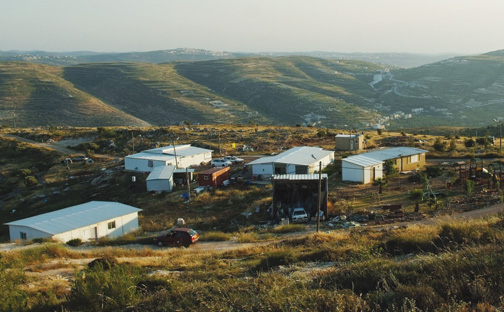
The brothers have grown up on a kibbutz after being orphaned in early childhood when both their parents were killed in a car accident. Gabi has a long history of sporadic outbursts of violent acts, from boyhood to the period of his army service to a time when he is married, living in Tel Aviv, and the father of a small son. It is as a consequence of one of these violent episodes—its precise nature is not spelled out until relatively late in the novel—that he finds himself in jail and susceptible to the persuasion of an ultra-Orthodox proselytizer. Thus, when he comes to the settlement, he prays three times daily, pores over the writings of the Hasidic master Rabbi Nachman of Bratslav, longs to go on a pilgrimage to the Bratslaver’s native Uman in Ukraine, and contemplates more or less constantly all the bounties that the Holy One has bestowed on him. His fellow settlers regard him as “a saint,” though they do not appear to share his particular passion for Bratslaver Hasidism. While Gabi concentrates on his spiritual self-realization (irrevocably removed, however, from his ex-wife and his son), the penniless Roni cooks up a questionable scheme to market the olive oil produced in the neighboring Arab village to the boutique shops in Tel Aviv.
The two brothers were once close, but fell out of touch during Roni’s sojourn in America. Now they belong to utterly incompatible worlds, and there are frequent arguments between them. One of the strengths of the novel is that Gavron is able to create a convincing case for each side of the irreconcilable dispute. Here is a characteristic
exchange:
“I don’t feel the need to apologize for doing business and living the good life. Is your life any better? Are you happier? Are your values any nobler? To be silent? To pray? To stop using electricity at a certain time on Friday? I don’t get it.”
“I know you don’t get it,” Gabi said.
“Explain to me, then. What do you get out of endlessly reading and memorizing things said two hundred years ago by some Ukrainian rabbi, who told you to be silent, or to sing, or to rejoice, or God knows what?
“Peace of mind,” Gabi replied. “It brings me tranquility, love, happiness. For some reason, it’s hard for you to accept that. Maybe you’re trying too hard not to see it.”
“And maybe you’re trying too hard to see it.”
It should be evident that this is one of those arguments in which both sides are right, or perhaps, more to the political point of the novel, in which both sides are wrong. Gabi’s disapproval of his brother has a clear warrant in the rudderless and morally shabby nature of Roni’s life. It is not much of a life—the most one can say of it is that he has made no pretense of being someone he is not. Gabi, for his part, has in fact found peace of mind in religion, but it all seems, as his brother suspects, rather self-consciously willed (his enthusiasm for the pilgrimage to Uman has been kindled by YouTube videos). He remains cut off from his child and, until very late in the novel, from any intimate relationship. The tranquility, moreover, is not perfect: He becomes involved in a politically motivated act of destructive lawlessness that reminds us of the violent episodes of his earlier life, so, for all his piety, he does not seem to be an entirely trustworthy figure.
The crucial background to the conflict between the brothers is the disputed status of the hilltop settlement. It is, as I have noted, illegal from the official Israeli viewpoint, and near the beginning of the novel a government order is issued for its imminent evacuation. Though the expulsion of the settlers, overseen by the army and carried out with bulldozers, seems on the verge of enactment more than once, it never happens. “Fortunately for us, the right hand has no clue as to what the left one is doing,” a settler aptly remarks. The Ma’aleh Hermesh C activists pull strings in Jerusalem and obtain a temporary stay of the edict. (Israeli government circles here look rather like the Circumlocution Office in Dickens.) Then a Washington Post correspondent publishes an article on the unauthorized occupation of this site. “The hodgepodge of laws and conflicting authorities,” he writes, “like something out of Joseph Heller’s Catch-22, has allowed Jewish settlers to create a kind of Wild West, where they behave like outlaw sheriffs.” This condemnation triggers outrage in the White House, and American pressure is brought to bear on Israel to remove the settlement.
An Israeli cabinet minister shows up at Ma’aleh Hermesh C with full entourage, writhing under the blazing sun in his suit and tie, his physical discomfort a comical correlative to the political discomfort of his hopeless effort to placate both the Americans and the settlers. This long farcical scene vividly illustrates the government’s impotence in the face of the fierce determination of the settlers. The minister makes a little mealy-mouthed speech about “certain adjustments” that will have to be made at Ma’aleh Hermesh C. The fanatic beautician responds with a blistering, self-righteous denunciation:
“Tell the American president that he doesn’t stand a chance against us, because the king of the world is on our side! . . . What do Americans understand about the Israeli people’s struggle against Arab brutality? Who asked you to come here? Have you come to weaken the Jewish people, who’ve returned to the Land of Israel after two thousand years of exile and persecution and wars and pogroms and the Holocaust? Are you forcing us out of here—here, God’s sanctuary, the land of our forefathers? You’re throwing us out of here? And you dare to call that peace? Chutzpah!”
What emerges from Gavron’s representation of the settler movement as it is manifested in Ma’aleh Hermesh C is that it has been enabled not by a grand governmental plan of territorial expansion but, from the Labor government in 1967 to the succession of right-wing coalitions that continue to the present, by a checkered history of religious idealism, political acquiescence, cynicism, diplomatic gridlock, confusion, and sheer incompetence—the right hand not knowing what the left is doing. There is considerable justice in what one visitor from the other side of the “Green Line” says to Roni: “Tell me, are they not lunatics, burning with messianic ideological fervor, outlaws and bullies who harass the Arabs and steal land and all that?” The lunacy and even the ideological fervor are not shared by the representatives of the Israeli government we see in the novel, but they are not resolute enough to confront them in any effective or sustained way.
The intersecting stories of the two brothers in the end become an emblem for the underlying national context of the potent trouble spot that is the settler movement. The two boys, we should recall, are products of the kibbutz, which has often been thought of as the finest flowering of Zionist idealism. One of the settlers is in fact writing a dissertation on the failure of the kibbutz movement, involving “the appropriation of land, the decisions vis-à-vis sources of livelihood and the receipt of state credit and benefits, including, too, the reliance on slogans and ideology, and through also to the condescension and arrogance of a closed society, alienated and on a pedestal, functioning according to its own set of rules.” All of which makes the kibbutz sound like a precursor to the settlement movement.
The brothers grow up in the waning phase of the kibbutz experiment, and neither considered remaining there. In New York (Gabi also has a brief stay there) and in Tel Aviv, they are seen as different manifestations of the loss of orientation in “post-Zionist” Israeli society—Roni in pursuit of profit and pleasure with no deep human connections, Gabi ensconced in the bourgeois vapidness of a failing marriage as he is riven by his personal demons.
The divergent paths they then take in the wake of their private failures trace what amounts to a national trajectory. Roni remains where he began, an embodiment of the Israeli hustler, the paradigmatic figure of an acquisitive and hedonistic society. Gabi is driven by the collapse of his personal life to the reassurances of faith. But at a historical moment when believers have become political activists, his turn to religion entails the expropriation of land, acts of hostility toward the neighboring Arabs who are scarcely neighbors, estrangement from much of the Jewish population within Israel proper, and a withdrawal from what is bracing and challenging along with what is debased in the modern world. The fate of the brothers suggests that the settler movement with its aggressively confident values has flourished because it fills a vacuum in a country that senses or at least fears the withering of national values.
The last extended scene of the novel is an attempt by the army to remove the settlement in the midst of a Purim celebration. Everyone at Ma’aleh Hermesh C is in costume. This carnivalesque moment perfectly exemplifies the country’s topsy-turvy political realm as well as the confusion of identities with which it is beset. The bulldozers are poised among the masked revelers. Then a quixotic and idiotic act on the part of three of the settlers triggers a chain of events that brings the evacuation to a halt.
The Hilltop is throughout a lively, engaging novel, shrewdly perceptive about contemporary Israeli society, and at times even quite funny, but in the end it is a sad book. It seems that no one will be able to get rid of Ma’aleh Hermesh C. The existence of such settlements in the heartland of Arab population is surely a recipe for disaster in the long run, and perhaps now even in the short run. In the final image of the novel, Gabi is hammering away at the reconstruction of his cabin, which was reduced to ruins by an army bulldozer. He soulfully meditates, as he is wont to do, on the “one immense and powerful holy God, who sees and knows everything.” This is Gavron’s last irony. His omniscient narrator sees what Gabi cannot see, and what Gabi’s God will not prevent, namely the historical catastrophe that is waiting to be born out of all this noble building and sowing and reaping and tending of flocks.
Suggested Reading

Our Lady in Tehran
In Tehran, the Mossad has orchestrated a complex and brazen operation as part of a last-ditch effort to cut the capital’s power supply so that the Israeli Air Force can take out Iran’s nuclear program
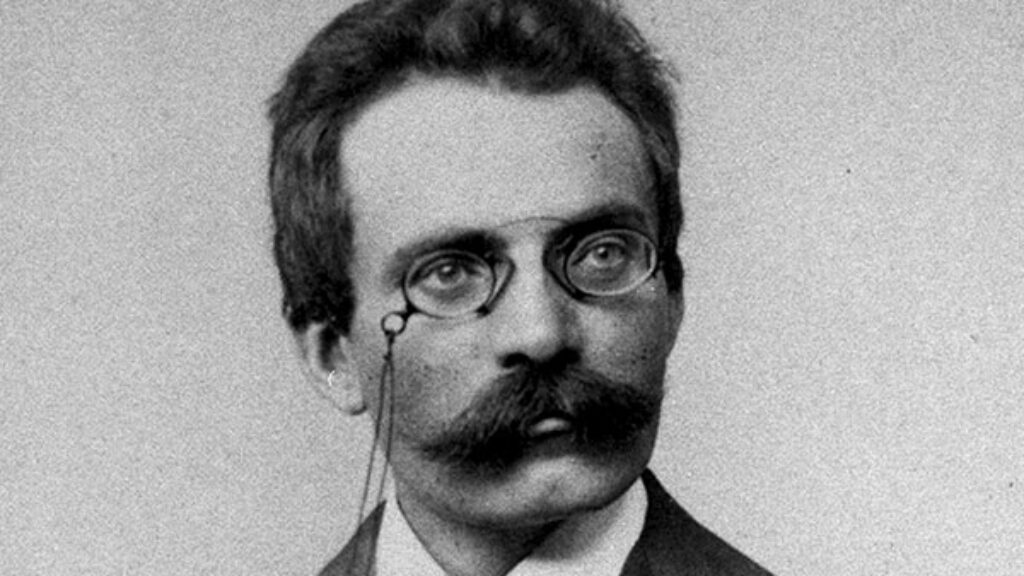
Return without Returning
In Micah Goodman’s new book, The Wondering Jew, he argues that Israeli Jews should develop a relationship with Jewish tradition that falls somewhere between strict adherence and total abandonment.
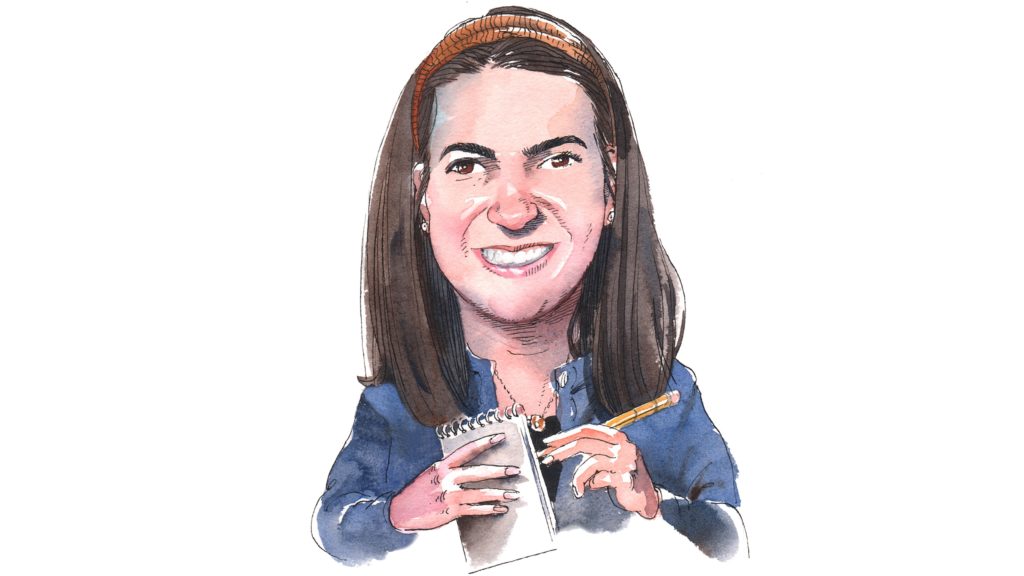
Return to Me
Chaim Potok was a talented polymath. But plays, too—who knew?
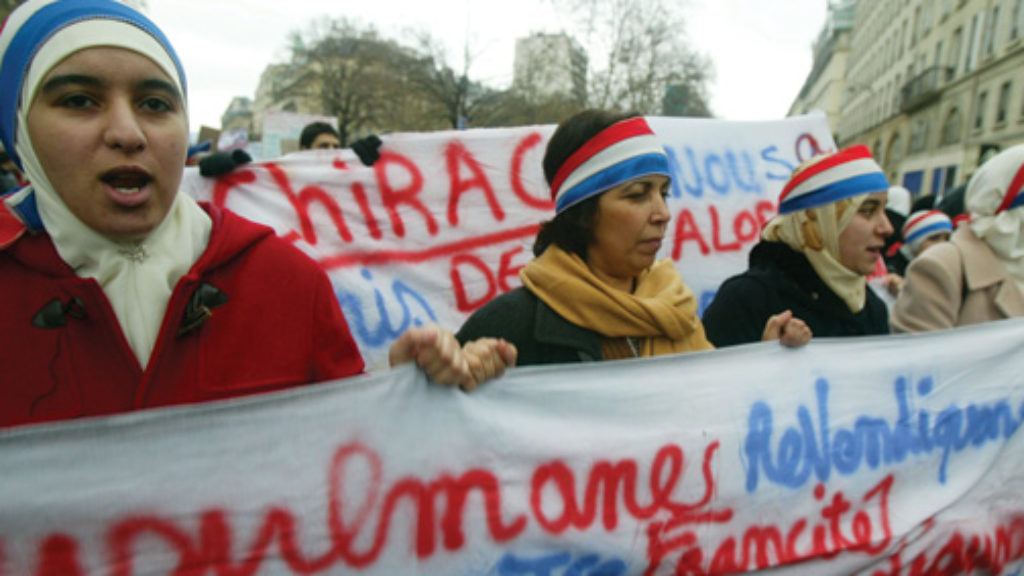
Strange Journey: A Response to Shmuel Trigano
Two historians challenge Shmuel Trigano’s analysis of anti-Semitic violence in France.
Comments
You must log in to comment Log In